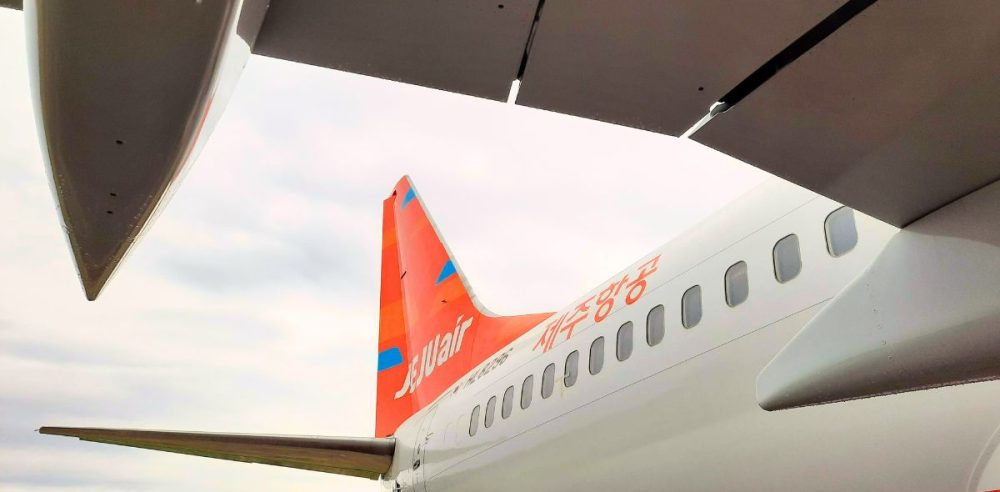Boeing’s stock took a significant hit Monday, plummeting nearly 5% after South Korean authorities launched an investigation into the B737-800 model involved in the devastating Jeju Air crash.
The accident, which occurred on Sunday, claimed the lives of 179 passengers, leaving only two survivors—both crew members who suffered severe injuries, reported the New York Post. Acting President Choi Sang-mok directed the Transport Ministry to conduct a sweeping inspection of all B737-800 aircraft in the country, further heightening concerns for the aerospace giant.
The crash unfolded during a landing attempt at Muan International Airport, where the plane reportedly skidded off the runway and struck a wall before bursting into flames. Preliminary reports suggest the aircraft suffered a bird strike before the pilot attempted to abort the landing and issued a distress call. However, the exact cause remains unclear, with South Korea’s aviation safety authorities working closely with U.S. investigators and engine manufacturer CFM International.
Two black boxes recovered from the wreckage are expected to shed light on the tragedy.
Jeju Air, the operator of the ill-fated flight, issued a public apology, promising full cooperation in the investigation and support for the victims’ families, per the Post. The airline has also dismissed speculation of mechanical failures or inadequate safety measures despite the crash being the latest blow to the safety reputation of Boeing’s aircraft. On Monday, a second Jeju Air flight experienced a landing gear malfunction, adding to growing scrutiny of the airline’s operations.
The crash has triggered painful memories of the 737 Max disasters in 2018 and 2019, which resulted in a two-year grounding of that model and significant reputational damage for the company, as previously reported on by The Dallas Express. Boeing has expressed condolences to the victims’ families and pledged full support for the investigation.
The South Korean Transport Ministry is inspecting the country’s B737-800 fleet and examining the safety infrastructure at Muan Airport. The ministry plans to assess whether structures like the localizer—a device intended to guide safe landings—should be redesigned with lighter materials to minimize crash impacts.
Financial repercussions for Boeing could extend beyond the immediate stock plunge, with potential ripple effects on future orders and customer confidence. The B737-800, while distinct from the troubled Max series, is a staple of budget airlines, including Jeju Air. Analysts caution that intensified regulatory scrutiny and public mistrust could deter airlines from investing in the model, forcing Boeing to navigate a precarious recovery path.


